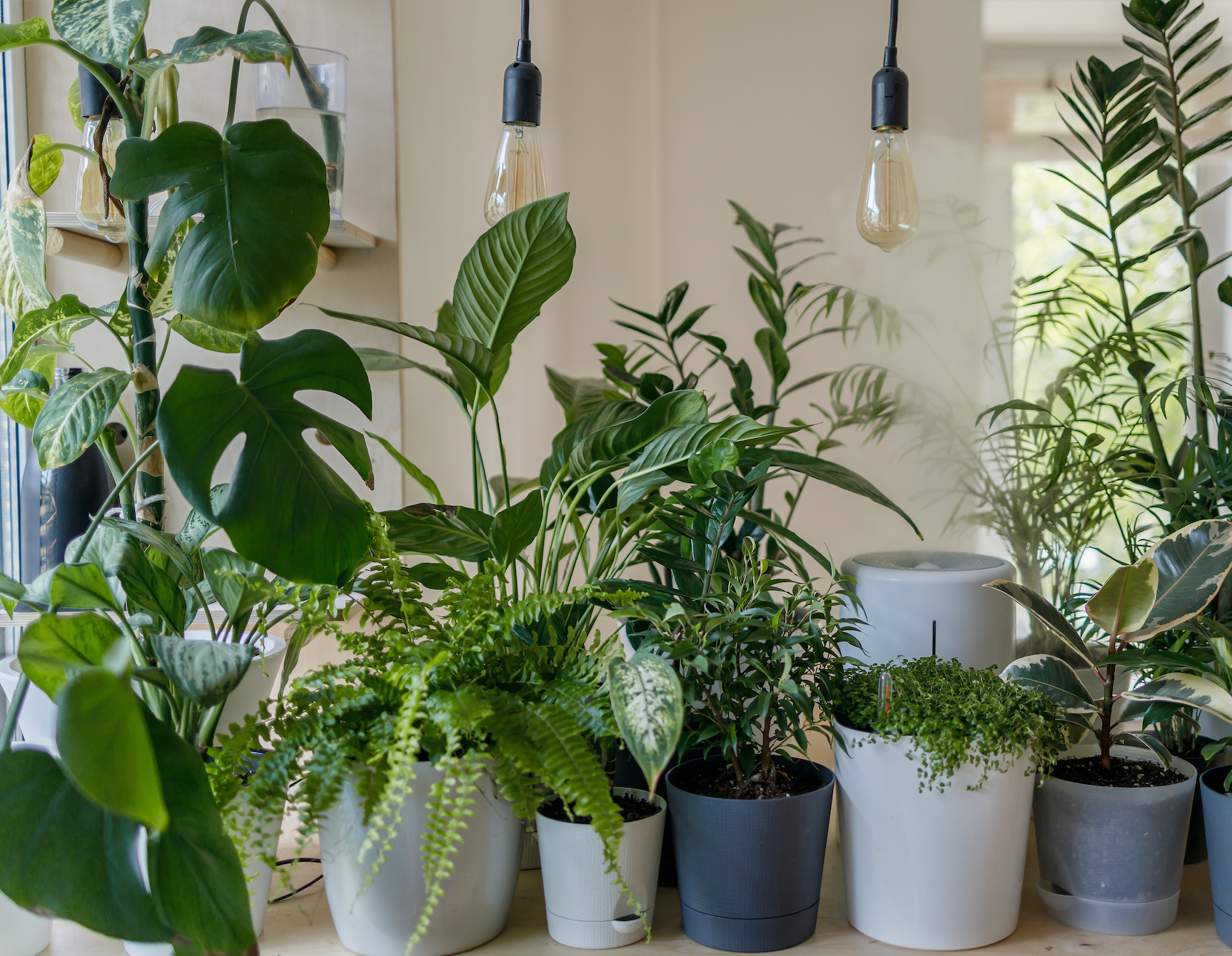
Houseplants, those leafy companions that bring life and greenery into our homes, are surrounded by a veil of myths and misconceptions about their care and maintenance have emerged with their increasing popularity. We are here to debunk some common houseplant myths, allowing you to provide the best care for your houseplants.
Myth #1: Water Once a Week
-

The frequency of watering your houseplants depends on several factors, including the plant species, pot size, light conditions, and the environment. While a general guideline suggests watering once a week, it's not a one-size-fits-all rule. Overwatering is the most common cause of plant demise, so it's important to check the moisture level of the soil before watering. Stick your finger about an inch deep into the soil, and if it feels dry, it's time to water. Adjust your watering schedule based on your plant's specific needs.
Myth #2: Succulents Only Need a Tiny Bit of Water
-

Succulents are known for tolerating drought and storing water in their leaves. However, the notion that they only require a tiny amount of water is misleading. While succulents are adapted to arid conditions, they still need regular and thorough watering. When watering succulents, ensure the soil is completely soaked and allow it to dry out between waterings. The key is to provide water in moderation, avoiding both overwatering and underwatering.
Myth #3: Yellow Leaves = Death
-

Yellow leaves on a houseplant are often interpreted as a sign of impending doom. However, yellowing foliage does not always signify the end for your plant. Yellow leaves can be a normal part of a plant's life cycle. Ageing leaves naturally turn yellow before they drop off. On the other hand, overwatering, nutrient deficiencies, pests, or inadequate light can also cause yellowing leaves. Assessing other factors before jumping to conclusions about your plant's health is crucial.
Myth #4: Tap Water Contains Harmful Chlorine
-

It is often believed that tap water contains harmful Chlorine that can be detrimental to plants. While Chlorine is added to tap water to disinfect it, the levels are typically not harmful to most houseplants. In fact, allowing tap water to sit out for 24 hours before watering can help dissipate the Chlorine. If you're concerned about chlorine levels, you can use a water conditioner widely avalible from aquarium shops (to make water safe for pet fish) or filter the water to remove any potential impurities. Our advice is dont worry about Chlorine. It's a complete myth, and treating water every time your plants need a drink makes keeping houseplants expensive and complicated.
Myth #5: All Houseplants Need Full Sun
-

Picture this: your plant sunbathing by the window, wearing its tiny sunglasses. While some houseplants do crave sunlight, not all are sun worshipers. Some prefer dappled light, indirect sunlight, or even the cozy embrace of a darker corner. It's like a plant's version of choosing a beach vs. curling up with a book in a quiet nook. Know your plant's light requirements, and you'll avoid sunburn or, well, botanic sunbathing.
Myth #6: Misting Your Plants is Essential for Humidity
-

Who hasn't indulged in a bit of plant pampering with a spray bottle in hand? While misting can add a touch of moisture to the air around your plants, it's not a miracle worker for boosting humidity. For true humidity-loving plants, consider a humidifier or a stylish pebble tray filled with water. Misting may be more for your enjoyment than your plant's benefit.
Myth #7: Houseplants Purify the Air 24/7
-

Houseplants are like the eco-warriors of our indoor spaces, but they do need their beauty sleep. While they do help clean the air, they're not doing it when the lights are out. Plants photosynthesize during the day, absorbing carbon dioxide and releasing oxygen. At night, they switch things up, taking in oxygen and releasing carbon dioxide. So, don't rely on them for a midnight air detox.
So, there you have it, fellow green thumbs. It's time to bid adieu to these houseplant myths and embrace a more enlightened approach to plant parenting. Happy planting! 🌿✨
XOXO,
LITF











